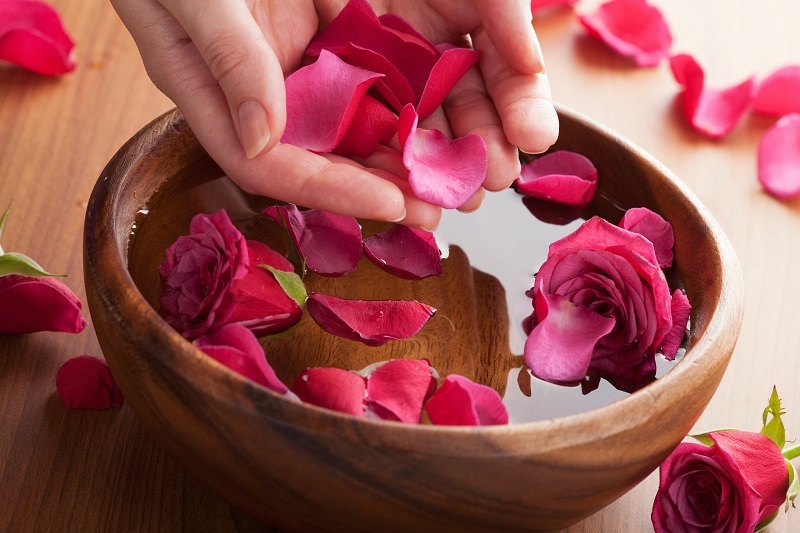Discover Peony Joy: The Symbolism and Special Meaning Behind Every Colour
Peonies are among the world's most cherished flowers, celebrated for their lush, romantic blooms and enchanting fragrance. From garden enthusiasts to floral designers, their allure is undisputed. However, beyond their beauty, each shade of the peony holds a hidden message, steeped in tradition and cultural symbolism.
In this in-depth guide, embark on a joyful journey to discover peony joy as we unveil the special meanings and symbolism behind every peony color. Whether you're selecting peonies for your wedding, a meaningful gift, or simply wish to deepen your appreciation, this guide offers all you need to know about this beloved bloom and its colorful language.

Why Are Peonies So Special?
Peonies, belonging to the genus Paeonia, have been cultivated for thousands of years and adored in cultures across the globe. Their grand blossoms symbolize romance, prosperity, and powerful emotions. Originally native to Asia, Europe, and North America, the peony's rich heritage weaves through art, myth, and traditional ceremonies.
- Longevity: With proper care, peony plants can live for over 100 years, making them the perfect symbol of enduring love and loyalty.
- Celebration: Peonies bloom in spring and early summer, signifying renewal, growth, and optimistic beginnings.
- Cultural Meaning: In China, peonies are known as the "king of flowers," symbolizing wealth, honor, and high social standing.
Understanding the Universal Symbolism of Peonies
In flower language or floriography, peonies universally represent:
- Romance and affection
- Good fortune and prosperity
- Happy marriage and honor
- Healing and comfort
Exploring the Spectrum: What Does Each Peony Colour Mean?
The joy of peonies is amplified by their stunning spectrum of colors. From bridal whites to passionate reds, gentle pinks to sunshine yellows, each hue whispers a unique message.
1. White Peonies: Purity, Apology, and New Beginnings
- Symbolism: White peonies have long been revered as emblems of purity, innocence, and fresh starts. They're a powerful choice for weddings, symbolizing a pure union, but also hold deeper connotations of apology and honor.
- Cultural Significance: In Eastern traditions, white peonies are often offered as tokens of respect and remembrance, making them a common sight at significant ceremonies and memorials.
- Perfect for: Bridal bouquets, expressions of sincere regret, new ventures, and as sympathy flowers.
Send a bouquet of white peonies to communicate heartfelt sympathy or wish someone success on a new journey. Their classic elegance brings peace and hope to any setting.
2. Pink Peonies: Romance, Youth, and Bashful Love
- Symbolism: The pink peony stands for romance, grace, and joyous celebrations. Its color embodies youthful love, bashfulness, and tender affection.
- Cultural Significance: Pink peonies are treasured in Chinese culture, where they are considered the flower of riches and honor, often gracing spring festivals and lavish weddings.
- Perfect for: Weddings, anniversaries, Mother's Day, and expressing a blossoming love or sweet appreciation.
Gift pink peonies to the one who makes your heart flutter, or use them as vibrant decor for joyous events celebrating love and friendship.
3. Red Peonies: Passion, Honor, and Respect
- Symbolism: Red peonies are the quintessential blossoms of passion, honor, and deep respect. Their striking color mirrors strength and powerful emotion.
- Cultural Significance: In China, red peonies are associated with the emperor and royal ceremonies, symbolizing dignity, prosperity, and revered status.
- Perfect for: Anniversaries, to honor loved ones, and to make bold statements of admiration or loyalty.
Choose red peonies to make a dramatic declaration, instilling feelings of admiration and respect, or commemorating a significant achievement.
4. Yellow Peonies: Happiness, Hope, and Renewal
- Symbolism: Yellow peonies radiate joy, optimism, and creativity. Their sunny hue is linked with cheerfulness, new beginnings, and the promise of good fortune.
- Cultural Significance: Less traditional in Asia but beloved in Western gardens, yellow peonies symbolize hope and positive energy.
- Perfect for: Celebrating achievements, welcoming a new baby, or as a cheerful pick-me-up for friends and loved ones.
Add yellow peonies to your bouquet for an instant boost of sunshine and positivity--a sure way to uplift any space or spirit!
5. Purple and Lavender Peonies: Enchantment, Mystery, and Nobility
- Symbolism: Shades of lavender and purple evoke mystery, royalty, and admiration. These regal peonies are perfect for those who want to convey respect, deep appreciation, and a sense of magic.
- Cultural Significance: Associated with nobility and the elite, purple peonies bring luxurious vibrance to any arrangement.
- Perfect for: Marking achievements, showing appreciation, or adding a touch of opulence to events and home decor.
Lavender peonies are a unique choice for anyone seeking to combine tradition with a sense of wonder and sophistication.
6. Coral and Orange Peonies: Courage, Excitement, and Warmth
- Symbolism: Coral or orange peonies stand for courage, enthusiasm, and friendship. Their warm, inviting colors inspire happiness and are linked with fresh starts and positive energy.
- Cultural Significance: While rarer, coral peonies have recently gained popularity as standout wedding and event flowers, representing vibrant joy and lively spirit.
- Perfect for: Congratulatory gifts, birthdays, housewarmings, or to inject fun and flair into any celebration.
Bring life to your bouquets with coral peonies--perfect for cheerful, optimistic occasions or to convey heartfelt encouragement.
Peony Joy in Different Cultures: Global Symbolism
The symbolism of peonies stretches across continents, each culture embracing the flower with its own unique perspective:
- China: Peonies are the "King of Flowers," symbolizing prosperity, honor, and good fortune. Traditionally, peony motifs adorned imperial robes and palaces.
- Japan: Known as "botan," peonies represent bravery and a masculine sense of honor. They are also linked to good marriage and fertility.
- Europe: Associated with healing and protection; peonies were historically used to ward off evil spirits and as medicinal herbs.
- Modern West: Peonies are often included in wedding bouquets for luck, love, and a happy, abundant future.
Peonies in Myth and Folklore
Discover peony joy with a look into ancient legends:
- Greek myths speak of Peon, a physician of the gods, whom the flower is named after. The peony supposedly sprouted from the earth to save Peon from the wrath of Asclepius, the jealous god of medicine.
- In China, peonies are believed to attract spirits of wealth and luck, leading to their common placement near the entrances of homes and temples.
How to Use Peonies: Flower Arrangements with Meaning
Incorporating peony symbolism into your floral arrangements can add a thoughtful touch to your gifts and events. Consider these inspirations:
- Wedding Bouquets: Use white or pale pink peonies for classic romance, or combine shades for a story that celebrates unity and bliss.
- Anniversary Gifts: Red and deep pink peonies convey years of love, honor, and devotion.
- Housewarming Arrangements: Yellow and coral peonies offer joy, hope, and a bright start in a new home.
- Sympathy Bouquets: Offer white peonies in memory of loved ones, expressing respect and gentle remembrance.
Seasonal Peony Joy: When Do Peonies Bloom?
The fleeting nature of peony blossoms only adds to their charm. Most varieties bloom from late spring to early summer, creating a brief window for enjoying their lavish beauty. Their seasonality makes them especially treasured for events, and a symbol of cherishing the moment.
Tips for Growing and Preserving Peony Blooms
- Choose the Right Spot: Peonies prefer sunny locations with well-draining soil. Give them space to prevent mold and fungal problems.
- Patience Pays Off: Peonies often take a few years to mature and bloom robustly. Their longevity is worth the wait, with some plants living a century!
- Cutting Peonies: For cut flowers, snip peonies early in the morning when buds are soft like marshmallows for longest vase life.
- Drying Peonies: Preserve peony joy year-round by drying petals or entire heads, using silica gel or air drying, to create everlasting displays with symbolic meaning.

Frequently Asked Questions About Peony Colours and Symbolism
-
What's the rarest peony color?
Blue peonies do not exist in nature. The rarest shades are vivid yellows, lavenders, and oranges, often achieved through hybridization. -
Do peony colors fade as they age?
Yes, many peony blossoms will gently fade, giving bouquets a magical, evolving palette. -
Can you mix peony colors for an arrangement?
Absolutely! Mixing colors creates a richer language of meaning--pink and white for tender romance, red and yellow for joyful celebration, and so on.
Peony Joy: The Perfect Bloom for Every Emotion
Discovering peony joy is more than admiring a beautiful flower--it's embracing a centuries-old language of love, hope, and celebration. Each hue brings its own subtle message, allowing you to craft floral statements with purpose and heart.
Whether you're planning a wedding, honoring a loved one, decorating a home, or sending a thoughtful bouquet, let the meaning behind every peony color inspire your choice.
- White peonies for purity and apology
- Pink peonies for romance and youthful joy
- Red peonies for passionate honor
- Yellow and coral peonies for hope and friendship
- Purple and lavender peonies for enchantment and admiration
Experience the Endless Happiness of Peony Symbolism
Next time you cross paths with a peony, reflect on its color and the special meaning it carries. In every petal, there is a wish for joy, love, and prosperity--a timeless message as beautiful as the flower itself.
Embrace the language of peonies and let their vibrant hues bring joy and significance to every moment.
Your journey to peony joy begins with the simple act of noticing--and celebrating--every color's story.

